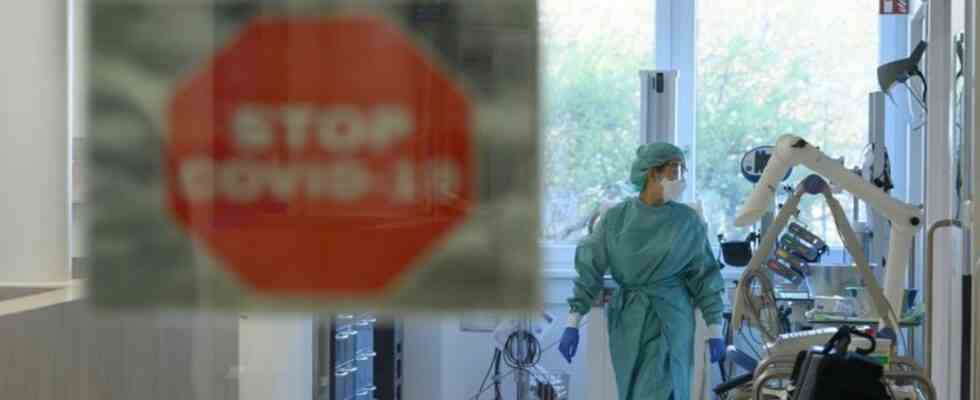Corona summer wave
High sick leave: Intensive care units are working to a limited extent
An intensive care nurse walks across the aisle in the corona intensive care unit of the Dresden University Hospital. Photo: Robert Michael/dpa-Zentralbild/dpa
© dpa-infocom GmbH
The absence of employees during the Corona summer wave is causing problems for hospitals. Corona-related staff shortages are also causing concern in the economy.
Increasing numbers of corona and high levels of sick leave are affecting the operation of intensive care units in German clinics.
“The high number of sick employees in particular is a problem for us in the health system – in addition, some are finally taking their well-deserved vacation to start the winter months with renewed energy,” said the President of the German Interdisciplinary Association for Intensive Care and Emergency Medicine (Divi), Gernot Marx, the newspapers of the Funke media group.
55 percent of the intensive care units – 736 in number – are currently working in partially restricted or restricted operation. “Unfortunately, that is a very high number that we have otherwise only seen in the colder seasons and a higher Covid load,” said Marx.
The information on the situation in the intensive care units is based on subjective assessments by the staff there. If a clinic states that its operation is “partially restricted” (currently 23 percent), this means that regular operation is still possible, but only because some operations have to be canceled, for example, explains a Divi spokeswoman. If the operating situation is given as “limited” (currently 32 percent), regular operation is no longer possible.
Fewer intensive care beds due to staff shortages
According to the Divi daily report on Saturday, 1053 patients with Covid-19 were treated in intensive care, 19 fewer than the day before. According to Marx, there are currently about twice as many as at the same time last year and almost four times as many as in 2020. At the same time, there are almost 2,000 fewer intensive care beds available than last year, mainly due to a lack of staff.
The care of the life-threateningly ill patients and emergency patients is secured everywhere. “But in the hospitals, numerous operations are being postponed again and staff have to be relocated,” Marx made clear.
The Robert Koch Institute (RKI) gave the nationwide seven-day incidence on Saturday morning at 700.3. The day before, the value of new infections per 100,000 inhabitants and week was 699.5, in the previous month it was 276.9. However, the incidence does not provide a complete picture of the infection situation. Experts have been assuming for some time that there will be a large number of cases not recorded by the RKI – mainly because not all infected people have a PCR test done. Only positive PCR tests count in the statistics. In addition, late registrations or transmission problems can lead to a distortion of individual daily values.
Increasing numbers of infections are a burden on the economy
The Association of German Chambers of Industry and Commerce (DIHK) also sees the increasing number of corona infections as a major burden for the economy. “Corona-related staff shortages are a challenge for many companies – especially when there is already a shortage of skilled workers,” said DIHK President Peter Adrian to the editorial network Germany (RND / Saturday). “Orders have to be rejected or take a long time, such as with construction.”
With a view to the fall, Adrian said: “With isolation and quarantine rules, the consequences for the loss of employees and thus the ability to work in the economy must always be considered.” For the functioning of everyday life, “not only the health care system and the state infrastructure, but large areas of the economy” are critical.
Federal Health Minister Karl Lauterbach (SPD) defended the government’s current corona policy. Many citizens wondered whether an infection was coming through the back door, the minister wrote on Twitter.
“No,” he assured – the seven-point plan he presented in June to prepare for the fall is already under way. This includes, among other things, “an infection protection law that is sufficient for all levels of infection,” emphasized the SPD politician, adding: “I’m happy to forego vacation for it.”

